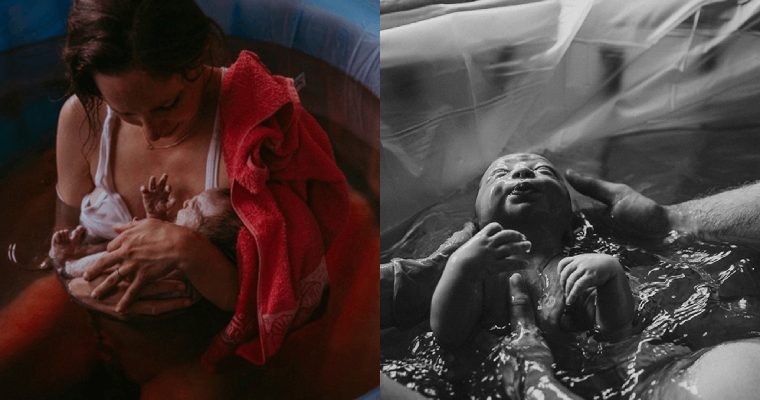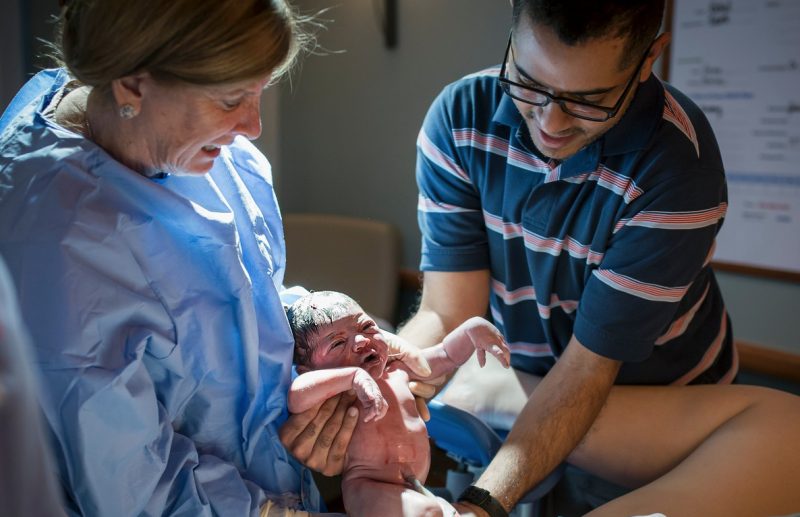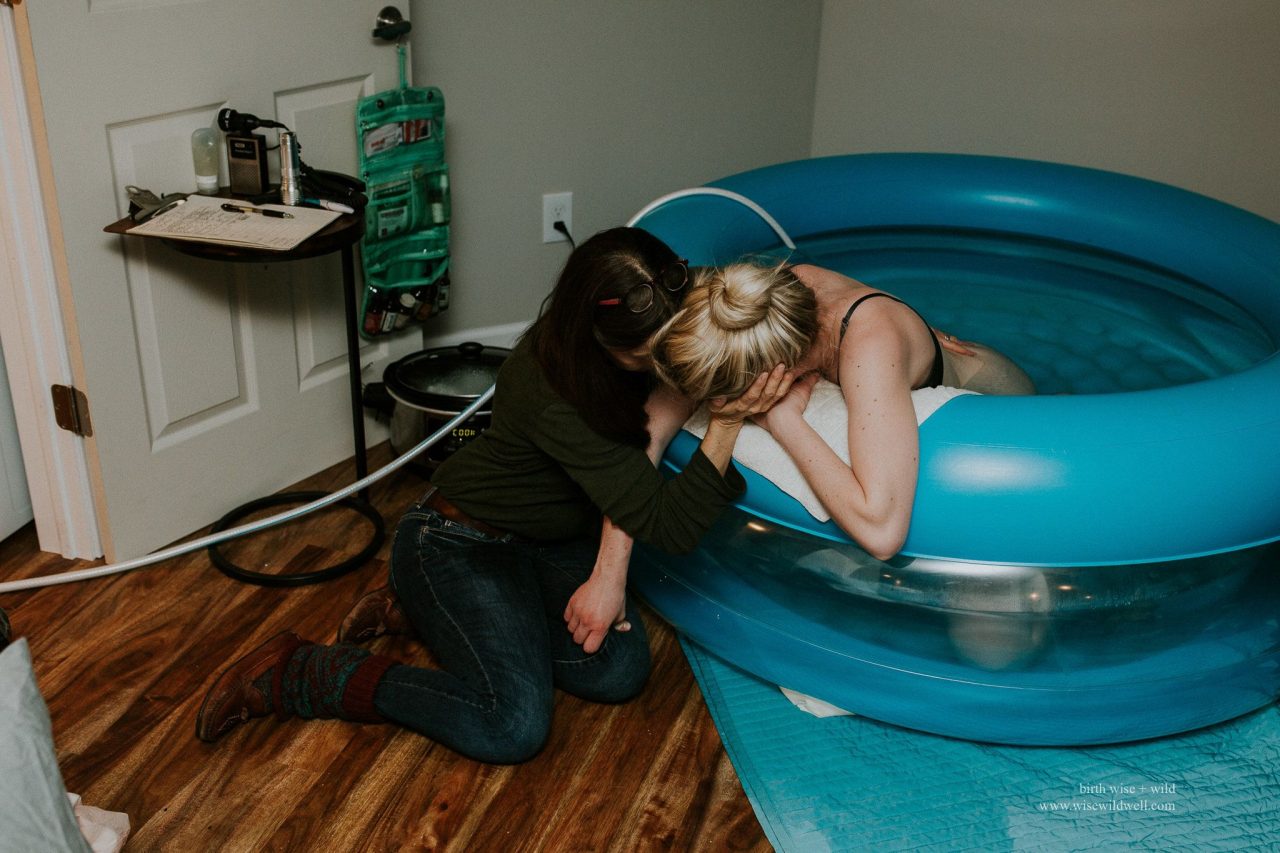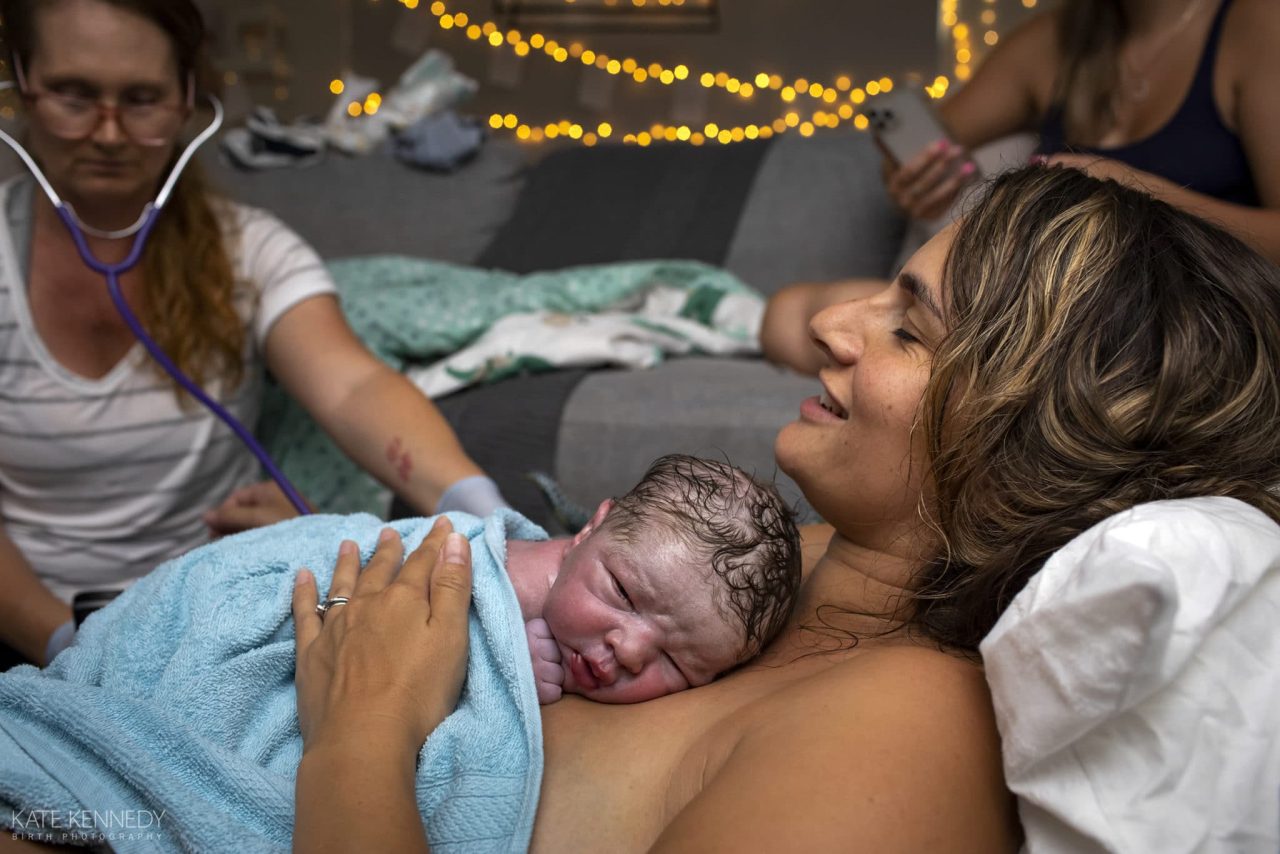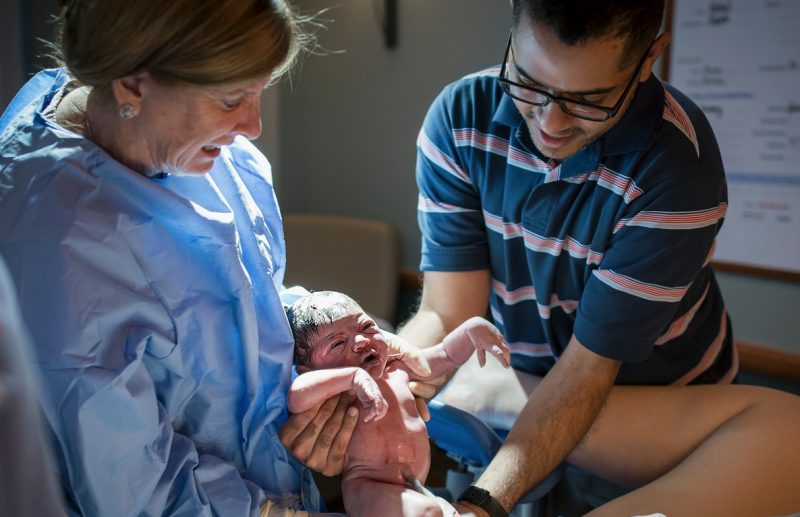In recent years, the number of surrogacies has significantly increased.
Many people think that this is linked to our tendency to have children later in life, once some mothers can’t carry a pregnancy to term anymore. According to experts, even back in 2012, this industry was worth $6 billion. However, this number is not precise because many of these cases haven’t been processed legally.
At Bright Side, we wanted to find out why women become surrogate mothers and what happens to a newborn if the biological parents abandon it.
What happens if a child is born handicapped?
The peculiarities of the physical development of a fetus should be stipulated in a contract. Usually, the clients have to pay the full amount even if a child is born with a medical condition. This happens when a surrogate mother has fulfilled her obligations and the pathology of a fetus is accidental.
In 2014, the world was struck by the story of a baby boy named Gammy. An Australian couple hired a Thai woman to become a surrogate mother for them. The woman got pregnant with twins. One of the twins, the boy, had Down syndrome. So the biological parents left Thailand with the boy’s twin sister. The surrogate mother still received the full compensation.
Gammy and his surrogate mother
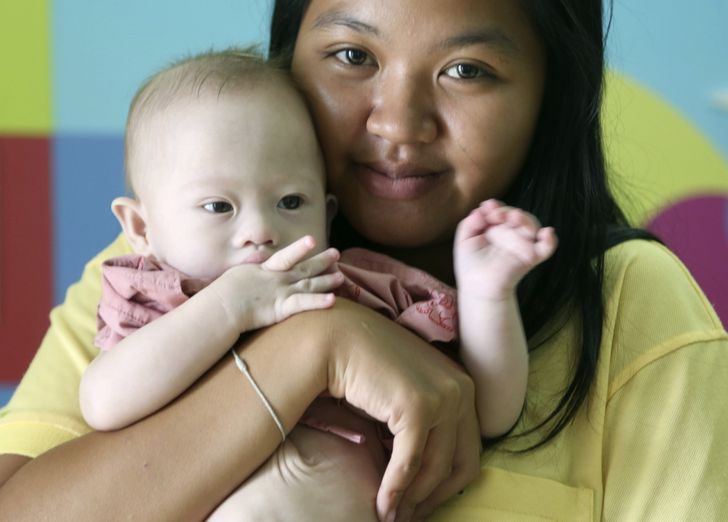 © AP / East News
© AP / East News
Is it true that surrogate mothers are usually women with low income?
Surrogate mothers are usually poor and socially disadvantaged women. Surrogacy can significantly increase their quality of life. For example, this is the amount of compensation in different countries of the world:
- USA (California) — $60,000
- Ukraine — $23,000
- Russia — $15,000
Women who are going through financial difficulties can be tempted with high compensation. Unfortunately, the agencies that draw up the contracts with future parents can refuse to pay women the money. This happens rarely, though. Usually the agencies insist that women strictly follow every clause of the contract. For example, a contract says that a surrogate mother is not allowed to lift heavy things, but she buys a bag of potatoes and carries it home. Some agencies can consider these actions as violation of the terms of the contract and can refuse to pay the compensation.
If a surrogate mother doesn’t want to hand over the child, will it be taken by force?
The answer to this question depends on the country where this situation takes place. For example, in Russia, a new citizen should be registered in the civil registry office. The surrogate mother has to sign the documents granting her parental rights to her customers. If she changes her mind after the documents have been signed, the child will be taken by force because officially the customers are its biological parents. But if she refuses to sign, she will become the child’s rightful parent and the child will not be taken away from her.
In 2011, a similar case happened in USA. A woman was contacted via email and she promised to become a surrogate for a wealthy couple. But after giving birth, she refused to hand over the child. The problem was that the biological parents were violent and psychotic people. After 6 months in court, the surrogate mother was allowed to keep the child. The point is that the woman didn’t sign any official documents though she received some compensation. If a contract existed, the case could have been solved in favor of the other party.
Another scandal happened with an American named Mary Beth Whitehead. After giving birth to a daughter, she ran away to another state because she became attached to the newborn. The police found her and returned the child to her legal parents. The court acknowledged Mary Beth Whitehead as the mother of the child and permitted her to visit her daughter who lived with the legal parents. It’s interesting that after reaching the age of 18, the girl legally terminated Mary Beth’s parental rights.
Mary Beth Whitehead a year after giving birth to a surrogate child in 1987
 © ASSOCIATED PRESS / East News
© ASSOCIATED PRESS / East News
Such situations are rare. Usually, everything goes smoothly and both parties remain happy with the results. American Deborah Bolig, who became a surrogate mother of twins, is a perfect example of this. Currently both families have become friends and send gifts for special occasions to each other.
 Recommended20+ People Who Just Went on Vacation but Now Can’t Stop Talking About What Happened There
Recommended20+ People Who Just Went on Vacation but Now Can’t Stop Talking About What Happened There
Deborah Bolig (left) and the twins’ biological parents (right)
What will happen if the biological parents and the surrogate mother don’t want to take the child?
Unfortunately, in this case the child will be sent to an orphanage. However, this process can take quite a long time. Authorities will have to decide who the child belongs to, in which city it has to stay, and so on. If the biological parents are foreigners, the newborn can be hung in legal limbo if neither of the countries wants to acknowledge it as their citizen.
A situation like this took place in India where the surrogate mother lived. She was going to give birth to a child for a Japanese couple. But the spouses got divorced before the child was born. Neither the surrogate mother, nor the Japanese mother wanted the child. In accordance with Indian laws, a single father couldn’t adopt a daughter. Thanks to media involvement, the father got permission to take his daughter, who was named Manji, to Japan a few months after her birth.
An Indian nurse attends to Manji, a 12-day-old Japanese baby girl, whose fate hung in legal limbo until her father was able to adopt her.
Why are some women ready to give birth to a stranger’s child for free?
When women don’t want to get paid for giving birth to a stranger’s child, it is called “altruistic surrogacy.” This phenomenon is pretty common in Canada where it is forbidden to pay any compensation to surrogate mothers. The number of women who are ready to do it free of charge has become 4 times bigger over the last decade.
What are the pros of this position:
- Giving away a child for free is more ethical than selling it.
- Some people think of surrogacy as a business. Canadian women prove that a child can’t be a subject for sale.
Each of the altruistic surrogate mothers has children of their own, and many of them have become surrogate mothers a few times. BBC even produced a documentary about these women and named it 100 Women: The Surrogates Club.




